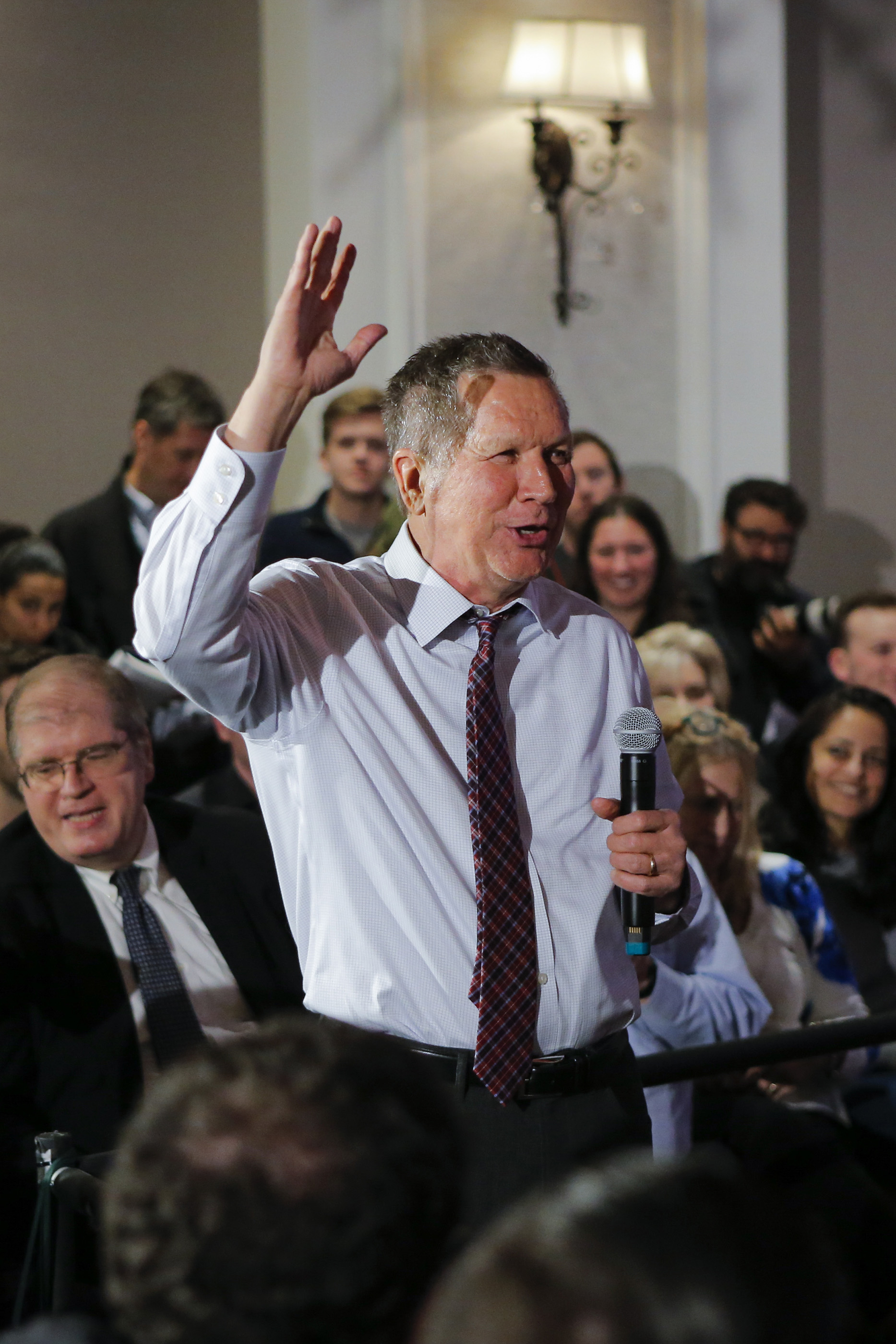On Friday, several news outlets reported of a possible 2020 bipartisan presidential unity ticket consisting of Ohio’s Republican Governor John Kasich and Colorado’s Democratic Governor John Hickenlooper. Hickenlooper pushed back on the rumors a bit but didn’t exactly deny them. Is this a real possibility? Could these two reshape the political map?
If you’ve been following presidential campaigns at all for the past decade or so, you might notice a familiar theme. Unity08, Americans Elect, and No Labels have all sought some sort of bipartisan unity ticket over the past three presidential election cycles. These efforts haven’t really born much fruit. It’s worth asking why.
One reason is that the task they’re attempting is incredibly hard. The major political parties have spent decades building sophisticated campaign infrastructures across all 50 states and will show up on each state’s ballots pretty much automatically. If a unity ticket were actually going to be credible, it would have to build this infrastructure basically from scratch, and apply for ballot access through 50 sets of rules. A lot of third-party efforts don’t even get this far.
And then there’s the fact that third-party tickets just tend not to do that well in general elections, even if they look promising in early polling. That’s not really for lack of money or effort; our election system favors a two-party system, and voters tend to find reasons to back one of the major parties as the election approaches. Voters also recognize that voting for a third party can actually make the election of their less favorite major party candidate more likely.
Finally, there’s the odd logic of the unity ticket. On a purely symbolic level, there is surely some chunk of the electorate that finds this appealing. They figure that partisanship has gotten out of control, creating national gridlock, and that the only way to break the partisan fever is by producing a coalition of a Democrat and Republican on the same ticket.
But that logic starts to break down upon even a cursory second thought. Kasich and Hickenlooper don’t actually agree on a great many issues. If you like Kasich’s pro-life stance, you’ll be horrified by Hickenlooper’s pro-choice beliefs. Do you care about Social Security funding or tax cuts? You’ll like one of these guys, but probably not the other. This ticket would mainly appeal to people who don’t care much about issues at all, and those people aren’t especially attuned to independent candidacies.
Relatedly, while a unity ticket sounds exciting during a campaign, how exactly does governing work? After all, only one of them could be president. According to the stories so far, Kasich would be at the top of the ticket. He might promise to listen to Hickenlooper’s advice before making an important governing decision, but really, it’s the president’s views that will prevail on most things.

(Photo: Eduardo Munoz Alvarez/Getty Images)
Now, there are some advantages that a Kasich/Hickenlooper ticket would have over previous unity efforts. For one, they’re actually current swing-state governors with name recognition, ties to donors, and loyal campaign staffers. This isn’t a Lieberman/Weicker ticket. And they have some respectable followings within their parties—Kasich ran a strong presidential campaign in 2016, and Hickenlooper was on Hillary Clinton’s short list for running mates. Hickenlooper has some moderate credentials as a business-friendly Democrat, and Kasich, while not particularly moderate, may be perceived that way thanks to his consistent vocal opposition to Donald Trump.
What kind of effect would such a ticket have if it were actually competitive in 2020? That’s obviously hard to know. Assuming Trump is running for re-election and isn’t much more popular than he is today, such a ticket could theoretically draw some Republican voters who are disgusted with Trump and would appreciate a non-Democratic alternative. But Hickenlooper’s presence on the ticket would undermine that somewhat. It also might draw some more moderate Democrats who aren’t satisfied with their party’s nominee. It’s not immediately obvious which party this ticket would hurt more. It could end up making Trump’s re-election more likely, depending on how things shake out.
More generally, it’s worth asking: What purpose does this serve? Beltway pundits spend a good deal of time decrying partisanship and gridlock, but just how many people would like the federal government to be more effective in processing its policy goals right now? Just how many people are upset that the Trump administration couldn’t get an Obamacare repeal passed and can’t agree on how to fund a border wall? (More importantly, how many of those who are upset by such things would actually vote against Trump?) And what guarantees do we have that a unity ticket would be any more effective in dealing with a Congress controlled by one party?
Finally, it should be noted that if Kasich and Hickenlooper are seriously troubled by the direction of the federal government, they have a potentially far more effective path to choose—running for president within a major party. Kasich would make a formidable Republican primary opponent to Trump. And Hickenlooper could be a strong Democratic candidate. No, those aren’t sure-fire paths to the presidency, but they’re more promising than inventing a third party.





